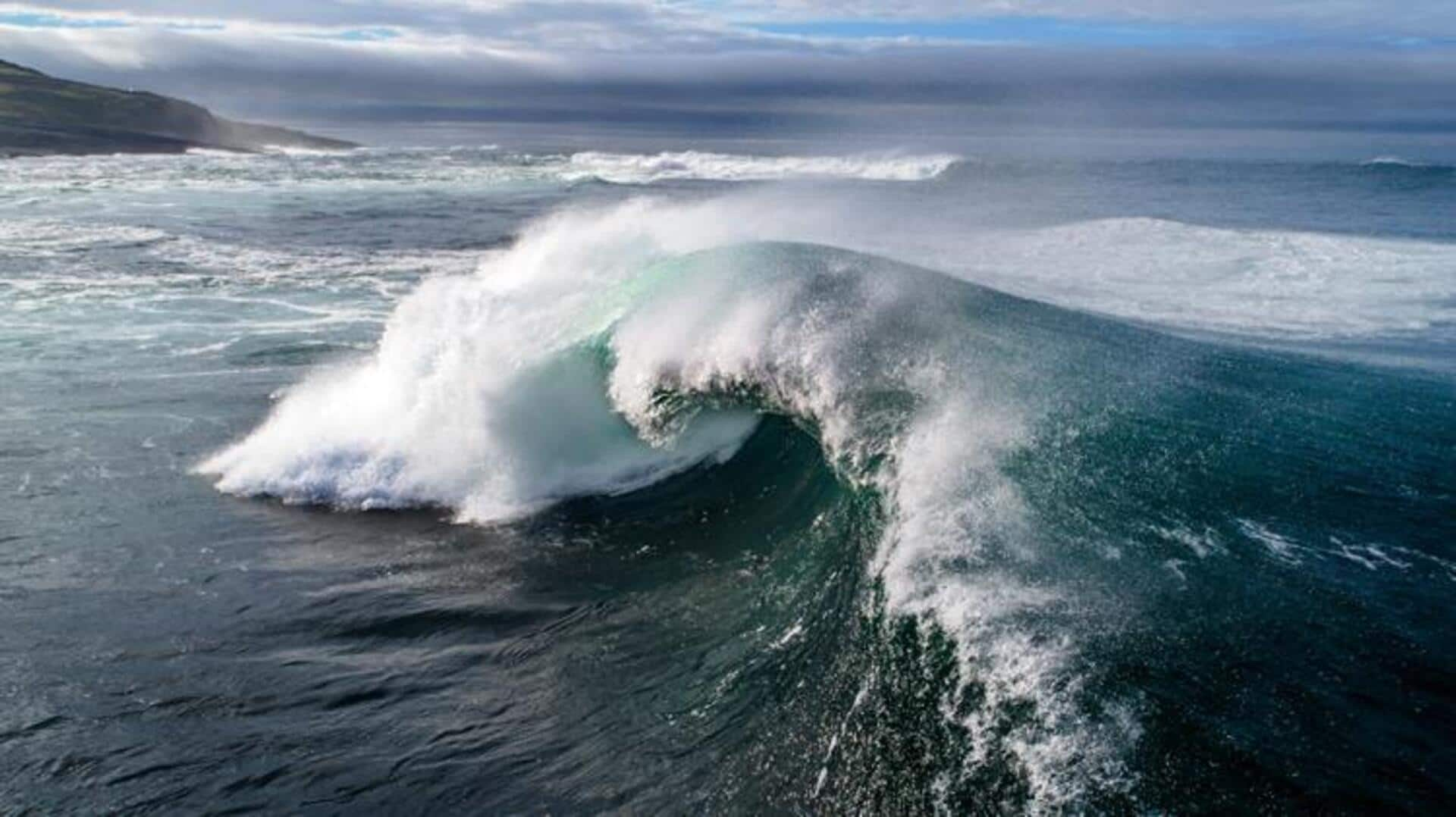
Atlantic Ocean's critical current system could collapse by 2030s
What's the story
The Atlantic Meridional Overturning Circulation (AMOC), a crucial system of currents in the Atlantic Ocean, is at risk of collapsing as early as the 2030s.
This prediction is based on new research that attributes the weakening of AMOC to warmer ocean temperatures and disrupted salinity levels, caused by human-induced climate change.
The study, which is currently under peer review, used advanced modeling to estimate this potential collapse could happen between 2037 and 2064.
Impact assessment
It could worsen climate change effects
The research indicates a higher probability of the AMOC collapsing by 2050.
Rene van Westen, a marine and atmospheric researcher at the University of Utrecht in the Netherlands and co-author of the study, expressed concern over this finding.
He warned that an AMOC collapse would exacerbate the negative effects of climate change.
Ecological significance
AMOC's role in global climate and marine life
The AMOC plays a crucial role in global weather patterns and climate.
It functions like a conveyor belt, pulling warm surface water from the southern hemisphere and the tropics, and distributing it in the cold North Atlantic.
The colder, saltier water then sinks and flows south.
This mechanism prevents parts of the Southern Hemisphere from overheating and parts of the Northern Hemisphere from becoming exteremely cold, while distributing nutrients that sustain marine life.
Climate repercussions
Potential global impact of collapse
An AMOC collapse could have disastrous effects on global weather patterns.
It could lead to Arctic ice extending down to the southern coast of England after a century and cause significant drops in average temperatures in Europe and parts of North America.
Additionally, the Amazon rainforest could experience a complete reversal in its seasons.
Research methodology
Advanced models used to monitor changes
The researchers from Utrecht used advanced models and identified an area of the South Atlantic Ocean as the optimal place to monitor for changes in the circulation.
They studied temperatures and ocean saltiness in this region to confirm previous predictions on when the AMOC might reach its tipping point.
An AMOC collapse "is a really big danger that we should do everything we can to avoid," said Stefan Rahmstorf, a physical oceanographer at Potsdam University in Germany.